News
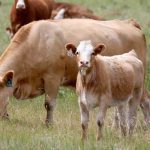
New program focuses on data literacy for cow-calf producers
Case studies and mentoring will help give farm data decision-making power

Study shifts water nutrient load responsibility
New U of M research finds that soil and vegetation may play a larger role in excess nutrient runoff than livestock manure
Glacier FarmMedia – A new study spearheaded by two University of Manitoba researchers is giving more insight into where nutrients running off into Prairie waterways are coming from, and pasture manure may not be the biggest culprit. The study, led by soil scientist David Lobb and Marcos Cordeiro of the department of animal science, sought […] Read more
Plant-based protein sector learns from recent downturn
Industry officials say they have learned lessons from recent marketing challenges and remain positive about the future
Lessons have been learned from the downturn in the plant-based protein marketplace, including what could have been done differently when it came to marketing, product development and consumer expectations. Attendees heard that message during a panel of industry representatives in the plant-based ingredient space at the recent Agri Tech Venture Forum in Toronto. “The problem […] Read more
New project puts fababeans in the spotlight
Companies sign onto Protein Industries Canada initiative to boost plant protein, and fababeans are one of the stars
Glacier FarmMedia – A new $24.5-million project backed by Protein Industries Canada includes a group of plant protein companies working to tackle some of the sector’s biggest hurdles. The national cluster for protein is teaming up with Roquette, Prairie Fava, BioNeutra and Plant Up to improve innovation, come up with more diversified products and improve […] Read more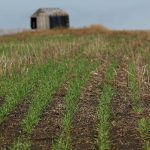
U.S. winter wheat crop looks good
Recent tour uncertain if projections will hold to end of the season
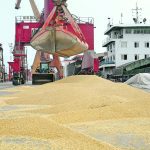
China’s imports to determine prices
The USDA estimates that China's buying needs will jump by 2034, while a Chinese science academy says they will shrink
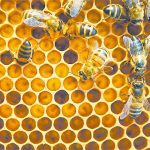
Honey obtains halal certification
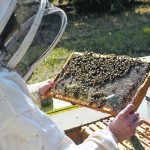
Canadian honey still struggles to reach Japan

Sustainability demands pressure livestock feed industry
Those attending recent conference were challenged to take micro-nutrient impact, efficiency and waste more seriously
Farmers and the animal nutrition industry need to understand that feeding livestock today requires thinking about what comes out of an animal as much as what goes in, according to many at the Animal Nutrition Conference of Canada. Demands around the world to restrict greenhouse gas and nutrient emissions from all forms of livestock mean […] Read more





